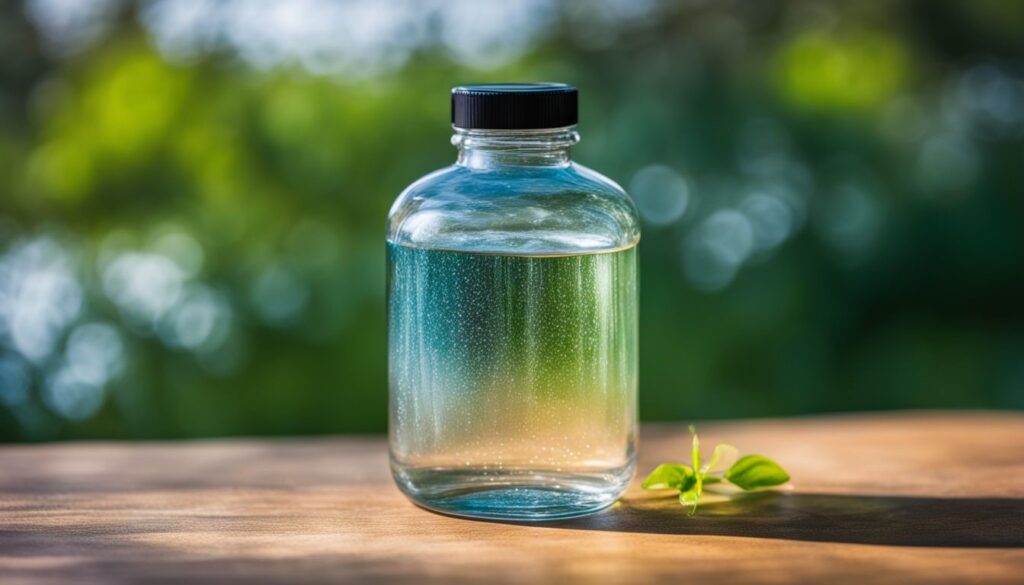The Surprising Health Benefits Of Colloidal Silver

Amidst the quest for natural health remedies, many turn to alternative options with hopes of finding relief. Colloidal silver, a suspension of tiny silver particles in a liquid, has gained attention for its purported health benefits.
This article delves into the science and folklore surrounding colloidal silver’s role in combating bacteria and enhancing healing. Discover whether this shimmering solution holds promise for your well-being.
Key Takeaways
- Colloidal silver is made of tiny silver particles in a liquid, and some people think it can boost your health by killing bad germs.
- Doctors warn that colloidal silver can be risky. It might change how other medicines work and turn skin blue-gray.
- Despite old stories about its benefits, there’s no strong proof that colloidal silver works for big sicknesses or infections.
- While some say colloidal silver helps with wounds and skin problems, too much can damage important organs like the liver.
- Always talk to a doctor before trying colloidal silver because it might not be safe and effective for everyone.
What is Colloidal Silver?

Colloidal silver is a suspension of tiny silver particles in a liquid base, often used as a dietary supplement. It is consumed orally and has been touted for its potential health benefits, but it also carries possible side effects that should be considered before use.
Definition of colloidal silver
Colloidal silver is a liquid mix with tiny silver particles floating in it. People often call this kind of mixture a “colloidal suspension.” These microscopic bits of silver are so small you can’t see them with your eyes alone.
Back in the day, before modern medicines were around, folks used silver to help keep wounds from getting infected.
Nowadays, some people use colloidal silver, hoping it will make them healthier. They believe it might kill off bad germs and help with various health problems because the tiny silver bits attack bacteria by messing up their proteins.
Even though it’s not proven to work as a health booster, many still buy products containing colloidal silver for this reason.
How it’s used and consumed
Colloidal silver has fans who say it can help your body in many ways. They drink it or put it on their skin to fight germs and heal wounds.
- People swallow colloidal silver for better health. They hope it will boost their immune system.
- Some spray it into their noses to clear up sinus problems.
- A few drops can go into the eyes to deal with infection, say some users.
- Folks dab it on cuts, burns, or rashes for quicker healing.
- Some even breathe it in through a nebulizer to target lung issues.
- Check with your doctor before starting any new health treatment.
- Don’t replace proven methods with colloidal silver without medical advice.
- Be aware of how much you use to avoid harmful effects like argyria.
- Understand there isn’t strong scientific evidence supporting its health claims.
Possible side effects
Colloidal silver might sound good for health but can have bad effects. Some people face problems after they use it.
- Skin turns a bluish-gray color: Silver builds up in the body, a condition called argyria.
- Hurts kidneys and liver: Too much colloidal silver harms these important organs.
- Can change how medicines work: Silver may stop some drugs from helping you.
- Might hurt your nerves: High amounts of this silver can harm the brain and nerves.
- Makes eyes and nails look weird: Ingesting colloidal silver might lead to a gray color on nails and in the eyes.
- Could cause seizures: Taking big doses could be very dangerous for your health and cause fits.
- No proof of curing big sicknesses: Scientists say colloidal silver doesn’t treat AIDS, cancer, or diabetes.
- Not good for infections or skin troubles: Research doesn’t show that it helps with these health issues.
Health Benefits of Colloidal Silver

Colloidal silver is known for its antibacterial, wound healing, and anti-inflammatory properties. It could also help with respiratory and skin conditions. These health benefits have sparked interest in using colloidal silver as a complementary and integrative health product.
Antibacterial properties
Colloidal silver is believed to have antibacterial properties due to the presence of silver ions (Ag+). This has been known for centuries, with ancient Greeks using silver for stomach pains or wound healing.
Silver carboxylate colloidal lignin particles (AgCLPs) have been found to function as sustainable and efficient antibacterial agents. However, no clinical evidence supports these claims, so it’s important to approach colloidal silver with caution and consult a healthcare professional before use.
The potential antimicrobial effects of colloidal silver may seem promising, but it’s crucial to note that scientific evidence supporting its effectiveness is lacking. While historical uses exist and various claims are made, it’s essential to rely on credible sources and consult healthcare experts before considering colloidal silver as a treatment option for bacterial infections or other health conditions.
Wound healing properties
Colloidal silver has been found to promote the healing of skin wounds and improve various skin disorders. Studies have shown that it can help reduce inflammation, stimulate new cell growth, and speed up healing.
The National Institutes of Health (NIH) conducted a study on colloidal silver’s wound-healing properties, suggesting its potential benefits in promoting skin recovery.
The evidence suggests that colloidal silver may aid in accelerating the healing of wounds and improving overall skin health. Its anti-inflammatory effects and ability to stimulate new cell growth make it a potential natural remedy for various skin conditions.
Anti-inflammatory effects
Colloidal silver has been noted for its anti-inflammatory properties when used on the skin. This makes it beneficial in treating skin inflammation and aiding wound healing. The silver particles found in colloidal silver help reduce inflammation and promote new cell growth, speeding up the healing process.
Additionally, colloidal silver is a natural anti-inflammatory that works swiftly to diminish swelling and repair inflammation in the skin or body.
In conclusion, colloidal silver’s ability to decrease swelling and stimulate tissue repair offers promising benefits for those seeking natural remedies for inflammatory conditions such as skin irritations or wounds.
Potential help for respiratory and skin conditions
Colloidal silver can potentially aid in treating respiratory conditions and skin issues like psoriasis and eczema. This is due to its antibacterial properties, which may help alleviate respiratory inflammation linked to allergies or other conditions.
Additionally, the healing properties of colloidal silver could assist in managing skin problems such as psoriasis and eczema.
It’s important to note that while these potential benefits exist, it’s crucial to approach colloidal silver cautiously and consult with a healthcare professional before using it.
Risks and Precautions
Before using colloidal silver, it’s important to consider the potential risks and precautions associated with its use. This includes possible medication interactions, the risk of argyria (a condition that causes skin discoloration), and adhering to safe dosage recommendations.
It’s essential to consult with a healthcare professional before incorporating colloidal silver into your health regimen.
Possible interactions with medications
Colloidal silver can cause poor absorption of certain antibiotics and thyroxine. Here are possible interactions with medications:
- Interference with the body’s absorption of certain drugs, including antibiotics and thyroid deficiency medication.
- Colloidal silver products may interact with medicines, such as some antibiotics and levothyroxine, causing potential risks.
- Taking colloidal silver along with medications that might harm the liver can increase the risk of liver damage.
- It interferes with the body’s absorption of certain drugs, including antibiotics and thyroid deficiency medication, leading to serious side effects.
Risk of argyria
Consuming colloidal silver comes with a risk of argyria, a rare condition that causes the skin and nails to turn bluish-gray. This is due to an excessive buildup of silver or its compounds in the body.
It’s crucial to note that argyria is not linked to the safe use of silver in medical treatments, like wound dressings. However, over-consuming colloidal silver can lead to toxic levels of silver accumulation in the body, causing severe health issues such as neurological damage and organ harm.
Therefore, it’s important for individuals considering using colloidal silver to be aware of these potential risks and consult with a healthcare professional before usage.
Safe dosage recommendations
When using colloidal silver, it’s important to consider safe dosage recommendations. Excessive consumption can lead to severe health problems. Here are important considerations:
- The FDA has not established safe dosage recommendations for colloidal silver, leading to potential risks associated with its use.
- Excessive consumption of colloidal silver can cause severe health issues such as kidney damage and seizures, emphasizing the importance of cautious usage.
- Consumers should be aware that safe dosage levels have not been determined, highlighting the need for careful consideration before using this product.
- It is crucial to understand that there are serious health risks linked to consuming colloidal silver, including argyria, neurological damage, and harm to vital organs like the liver and kidneys.
Should You Try Colloidal Silver?
Before considering colloidal silver, it’s important to carefully evaluate its effectiveness and safety. Alternatives are available, so consulting with a healthcare professional is advisable to determine the best course of action for your health needs.
its effectiveness
Colloidal silver is a popular home remedy for various health conditions, but its effectiveness and safety remain questionable. Despite claims of its antibacterial and wound healing properties, scientific evidence supporting these benefits is limited.
Additionally, there are potential risks associated with ingesting colloidal silver regularly, including the risk of permanent skin discoloration known as argyria. Research on consuming silver daily for immune system enhancement also lacks conclusive evidence.
It’s important to note that the National Center for Complementary and Integrative Health has cautioned against colloidal silver due to its potential serious side effects and lack of proven health benefits.
When considering whether to try colloidal silver, it’s crucial to consult with a healthcare professional before use, especially if you’re seeking alternative remedies for respiratory or skin conditions.
Alternatives to colloidal silver
Instead of using colloidal silver, consider these alternatives for promoting health and well-being:
- Antibacterial Honey: Known for its natural antibacterial properties, honey can be applied topically to wounds or consumed to soothe a sore throat.
- Tea Tree Oil: This essential oil has antimicrobial and anti-inflammatory properties, making it a potential alternative for skin conditions and wound care.
- Echinacea: Widely used to support the immune system, echinacea can be taken as a supplement or brewed into tea for respiratory support.
- Garlic: With its natural antibiotic and immune-boosting properties, garlic can be consumed raw or as a supplement to fight infections.
- Zinc Supplements: Zinc is essential for immune function and wound healing, making it a valuable alternative to colloidal silver for supporting overall health.
- Manuka Essential Oil: Like honey, manuka oil possesses strong antibacterial properties and can be used topically on cuts and scrapes.
Importance of consulting with a healthcare professional
Consulting with a healthcare professional before considering colloidal silver is crucial due to its potential risks and side effects. The lack of evidence on its effectiveness and the range of possible adverse effects emphasizes the necessity of seeking medical advice.
With concerns ranging from changes in skin color to more serious health issues, it’s imperative to prioritize your well-being by consulting a healthcare expert who can provide personalized guidance and ensure safe decision-making.
Considering that colloidal silver has potential risks and side effects, people interested in improving their health should consult a healthcare professional before ingesting it.
Final thoughts and recommendations
Before trying colloidal silver, it’s important to consider the lack of scientific evidence supporting its effectiveness. The potential side effects, such as skin discoloration and risk of interactions with medications, should also be considered.
Consulting with a healthcare professional is crucial before incorporating colloidal silver into your routine to ensure safety and appropriateness for your specific health needs. Remember that dietary supplements like colloidal silver should be disclosed to your healthcare provider to avoid potential complications.
When evaluating health options, it’s essential to prioritize scientifically supported treatments and therapies over those lacking substantial evidence. In the case of colloidal silver, its risks may outweigh uncertain benefits.
FAQs
Q: What is colloidal silver, and how does it work?
A: Colloidal silver is a solution of tiny silver particles suspended in a liquid. It works by attaching to and killing bacteria, viruses, and other pathogens.
Q: Is colloidal silver safe to use?
A: The Food and Drug Administration (FDA) does not consider colloidal silver safe or effective for treating any health condition. Ingesting silver can cause serious side effects, including a bluish-gray discoloration of the skin called argyria.
Q: What products contain colloidal silver?
A: Colloidal silver can be found in various forms, such as dietary supplements, nasal sprays, and topical ointments. It is also used in some water filtration systems and wound dressings.
Q: Are there any health claims associated with colloidal silver?
A: Some people take colloidal silver to treat infections, improve skin conditions, or boost their immune system. However, there is insufficient scientific evidence to support these health claims.
Q: What are the potential risks of using colloidal silver?
A: Ingesting products containing colloidal silver ingredients can lead to serious health risks, including argyria, kidney damage, and neurological problems. It can also interfere with the body’s absorption of certain medications.
Q: How was silver used historically for health benefits?
A: Historical records show that silver was used for its antimicrobial properties in ancient civilizations before the discovery of antibiotics. However, modern research has found safer and more effective infection treatment alternatives.
Q: Can colloidal silver cause harm if ingested?
A: Yes, ingesting colloidal silver solution can cause serious side effects and is not recommended for health-related purposes.
Q: What are the key ingredients in colloidal silver products?
A: Colloidal silver consists primarily of silver particles suspended in a liquid and should not contain any silver salts, silver protein, or other silver compounds that can pose health risks.
Q: Are there any reported cases of harm from using colloidal silver?
A: Yes, there have been documented cases of people experiencing adverse effects after ingesting or using products containing colloidal silver ingredients. These include argyria, kidney damage, and neurological issues.
Q: Is ionic silver the same as colloidal silver?
A: While ionic silver and colloidal silver involve silver particles suspended in a liquid, they differ in terms of the electrical charge of the silver particles. Colloidal silver contains uncharged particles, whereas ionic silver contains charged particles and can behave differently in the body.

